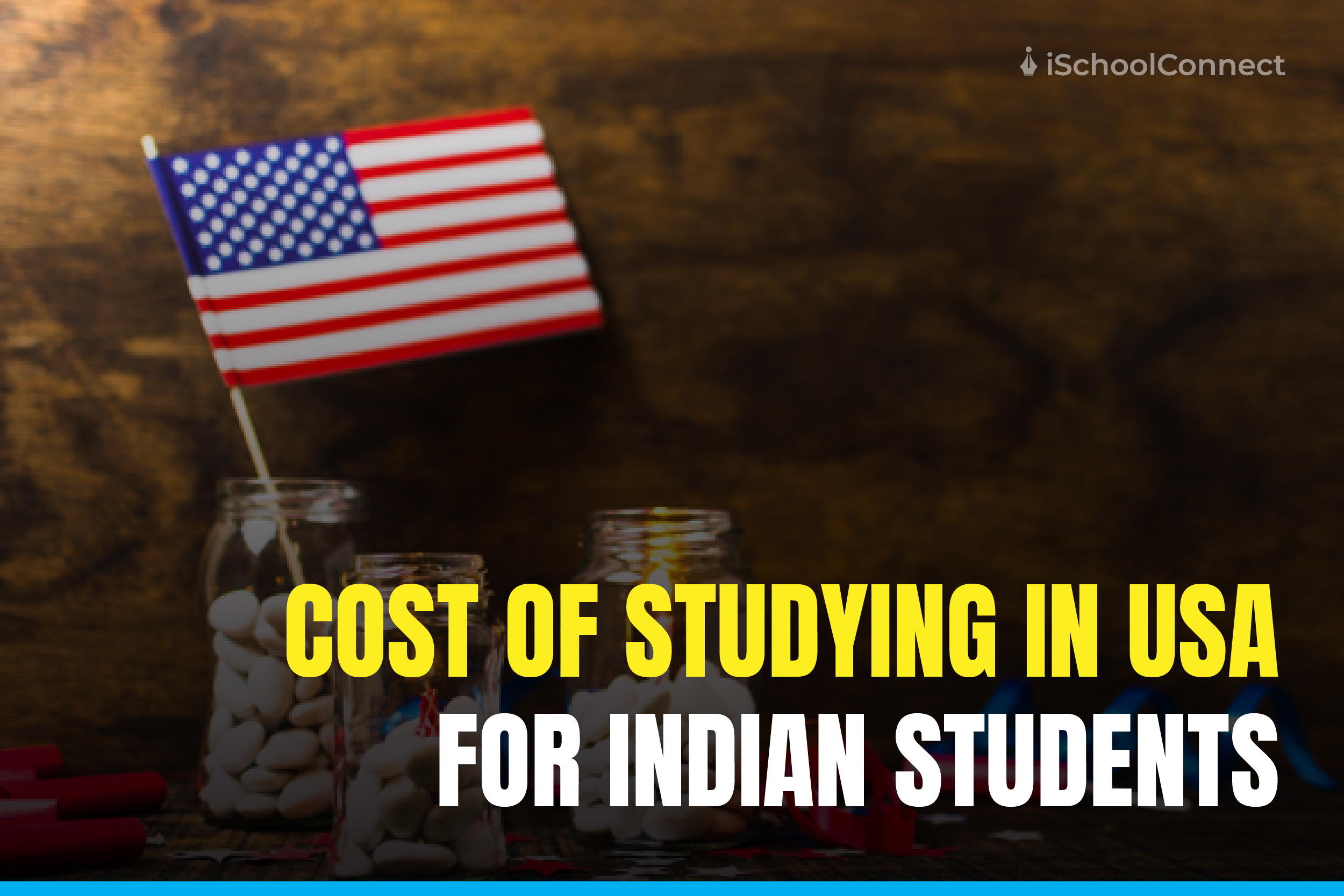Table of Contents
Education loans for abroad studies are essential financial tools that enable students to pursue higher education in foreign institutions. As international education costs continue to rise, these loans provide a viable solution to cover various expenses, including tuition fees, living costs, and travel expenses.
Designed specifically for aspiring students, education loans alleviate financial burdens and facilitate access to quality education worldwide. With flexible repayment options and competitive interest rates, these loans not only support academic ambitions but also contribute to personal growth and global workforce competitiveness. Understanding the application process and eligibility criteria is crucial for securing these funds effectively.
Education loans for abroad studies offer numerous advantages that can significantly ease the financial burden on students and their families. Here are the key benefits of education loans for abroad studies:
- Comprehensive Coverage: Education loans for abroad studies cover a wide range of expenses, including tuition fees, travel costs, accommodation, and living expenses, ensuring students can focus on their studies without financial stress.
- Lower Interest Rates: These loans typically offer lower interest rates compared to personal loans, making them a more affordable option for financing education abroad.
- Moratorium Period: Students benefit from a moratorium period, allowing them to start repayment after course completion, which provides financial relief during their studies.
- Tax Benefits: Borrowers can claim tax deductions on the interest paid under Section 80E of the Income Tax Act, reducing their overall tax liability.
- No Asset Liquidation: Education loans for abroad studies eliminate the need to sell valuable assets for funding, preserving family wealth while supporting educational pursuits.
- Improved Credit Score: Timely repayment of education loans can positively impact the borrower’s credit score, facilitating future financial endeavors.
- Visa Approval Support: A loan sanction letter can serve as proof of funds when applying for a student visa, aiding in the visa approval process.
- Flexible Repayment Options: Many education loans offer tailored repayment plans that align with the borrower’s future earning potential, easing financial burdens post-graduation.
Explore more: Get an education loan for MBBS abroad | Step-by-step process
Why do I need an Education loan?
When you apply to universities abroad and get admitted, the institution will ask you to share proof that you have enough money to spend on your studies. The kind of documents you have to show for proof will depend on which country you have applied to.
For example, when it comes to the US, you can only present bank statements about cash savings, fixed deposits, and education loan receipts.
Similarly, the US embassy only asks admitted students to share proofs of liquid assets, like gold, equity investments, provident funds, etc. This means that showing that you own a house won’t matter at all.
So, if the liquid assets you and your parents own don’t match the university and the embassy requirements, you will have to take a loan.
Collateral Education Loan vs Non-collateral Education Loan
Collateral education loans and non-collateral education loans serve as two distinct options for students seeking financial assistance for their studies abroad. Here’s a comparison of the two:
| Parameter | Collateral education loan | Non-collateral education loan |
| Definition | Requires the borrower to pledge an asset (collateral) as security for the loan. | Does not require any asset as collateral; relies on the borrower’s creditworthiness. |
| Loan Amount | Generally higher, often up to ₹1.5 crore, depending on the value of the collateral. | Typically lower, with amounts up to ₹1.25 crore available. |
| Interest Rates | Usually lower due to the reduced risk for lenders. | Higher interest rates due to lack of security. |
| Eligibility Criteria | More relaxed, as collateral serves as a guarantee for repayment. | Stricter requirements; relies on the borrower’s financial profile and co-applicant’s stability. |
| Processing Time | Can take longer, often up to a month due to collateral evaluation. | Generally faster, often processed within a week. |
| Types of Collateral Accepted | Can include immovable assets like property or liquid assets like fixed deposits. | No collateral required; may need a financial co-applicant instead. |
Explore more: MBA Education Loan – benefits, procedure and schemes
Top Education Loans Providers in India for Studying Abroad
Here are some of the top education loan providers in India for studying abroad, along with key features and interest rates:
State Bank of India (SBI)
- Loan Amount: Up to ₹1.5 crore
- Interest Rate: Starting from 10.05% fixed
- Highlights: Offers the Global Ed-Vantage scheme for students studying abroad.
HDFC Credila
- Loan Amount: Minimum ₹1 lakh
- Interest Rate: Starting from 12.80%
- Highlights: Customized loans based on the institution and student profile; covers a wide range of expenses.
Axis Bank
- Loan Amount: Minimum ₹50,000
- Interest Rate: 13.70% to 15.20%
- Highlights: Provides financial support for career-oriented courses; competitive rates.
Punjab National Bank (PNB)
- Loan Amount: Need-based
- Interest Rate: Variable rates starting from 9.40%
- Highlights: Offers loans for various courses abroad with favorable terms.
Bank of Baroda
- Loan Amount: Up to ₹80 lakhs for specified institutes
- Interest Rate: Starting from 7.15%
- Highlights: Baroda Scholar Loan scheme available for professional and technical studies.
Canara Bank
- Loan Amount: Need-based
- Interest Rate: 7.30% to 9.30%
- Highlights: Covers various educational expenses, including travel and living costs.
IDBI Bank
- Loan Amount: Up to ₹30 lakhs
- Interest Rate: 9% to 9.5%
- Highlights: Flexible tenure and attractive interest rates; no security required for loans below ₹4 lakhs.
Union Bank of India
- Loan Amount: Up to ₹75 lakhs
- Interest Rate: 10.90% to 12.55%
- Highlights: No processing fees and quick approval process.
Steps to Get an Education Loan to Study Abroad in 2025
To obtain an education loan for studying abroad, follow these essential steps:
- Research and Choose a Lender: Identify potential lenders by comparing interest rates, eligibility criteria, loan amounts, and repayment terms. Ensure the lender supports education loans for your intended course and institution.
- Gather Required Documents: Prepare necessary documents, including:
- Admission letter from the institution
- Proof of identity (Aadhaar card, PAN card)
- Proof of address (utility bill, rental agreement)
- Co-borrower’s income proof (salary slips, bank statements)
- Academic records (mark sheets, certificates)
- Fill Out the Loan Application: Complete the loan application form either online or offline, ensuring all information is accurate and complete.
- Attend the Interview: Some lenders may require an interview to discuss your academic background, career plans, and financial needs. Be prepared to answer questions about your chosen field of study and potential income.
- Submit Your Application: Submit the filled application form along with all required documents to the lender. Ensure that you meet any additional requirements specified by the bank.
- Loan Approval Process: The bank will review your application and documents. They may conduct further verification, including checking credit scores of co-borrowers. If approved, you will receive a loan offer detailing terms and conditions.
- Loan Disbursement: Once you accept the loan offer and sign the agreement, the bank will disburse the loan amount directly to your educational institution, either in full or in installments based on your fee schedule.
Explore more: Student loans for studying abroad
Eligibility Criteria and Documents Required for Education Loan in India
To apply for an education loan eligibility for students in India, they must meet specific eligibility criteria and provide various documents. Here’s a detailed overview:
Education loan eligibility criteria
- Nationality: The applicant must be an Indian citizen.
- Age: Typically, the minimum age is 18 years, with a maximum limit varying by bank, often up to 35 years.
- Academic Performance: A strong academic record is generally required, with some banks specifying a minimum percentage (often 50% or higher) in previous examinations.
- Admission Confirmation: The applicant must have secured admission in a recognized institution, either in India or abroad, for a technical or professional course.
- Co-applicant Requirement: Full-time students are usually required to have a co-applicant (such as a parent or guardian) with a stable income.
- Course Type: Banks prefer applications for job-oriented courses, such as engineering, medicine, or management.
Documents Required
- Proof of Identity: Any valid ID (Aadhaar card, PAN card).
- Proof of Residence: Address verification documents (utility bill, rental agreement).
- Academic Records:
- 10th and 12th-grade mark sheets
- Graduation mark sheets (if applicable)
- Entrance exam results (e.g., GRE, GMAT)
- Proof of Admission: Admission letter from the institution (conditional letters may be accepted).
- Statement of Costs: A detailed schedule of expenses for the course.
- Photographs: Typically two passport-sized photos.
- Bank Statements: Last six months’ statements from the applicant’s bank account.
Explore more: Foreign education loans : A guide
Summary
Education loans for studying abroad provide financial assistance to cover tuition fees, living expenses, and travel costs, enabling students to pursue higher education in foreign institutions. These loans offer benefits like comprehensive coverage, lower interest rates, tax benefits, and flexible repayment options. Borrowers can choose between collateral and non-collateral loans, depending on their financial situation. Top Indian lenders include SBI, HDFC Credila, Axis Bank, PNB, and more, each offering tailored schemes for students. To secure a loan, applicants must meet eligibility criteria, submit necessary documents, and follow a structured application process for approval and fund disbursement.
FAQs
Ques 1: What expenses are covered under education loans for abroad studies?
Answer 1: Education loans typically cover tuition fees, travel costs, accommodation, living expenses, health insurance, and other academic-related costs such as books, equipment, and exam fees. Some loans also cover pre-admission expenses like exam coaching fees.
Ques 2: What is the difference between collateral and non-collateral education loans?
Answer 2: Collateral loans require the borrower to pledge an asset (e.g., property or fixed deposits) as security, offering higher loan amounts and lower interest rates. Non-collateral loans do not require assets but rely on the borrower’s or co-applicant’s financial stability, often with higher interest rates.
Ques 3: Can I start repaying my education loan after completing my studies?
Answer 3: Yes, most education loans offer a moratorium period, allowing repayment to start after course completion. This period typically extends until you secure employment, with repayment starting 6-12 months after graduation.






